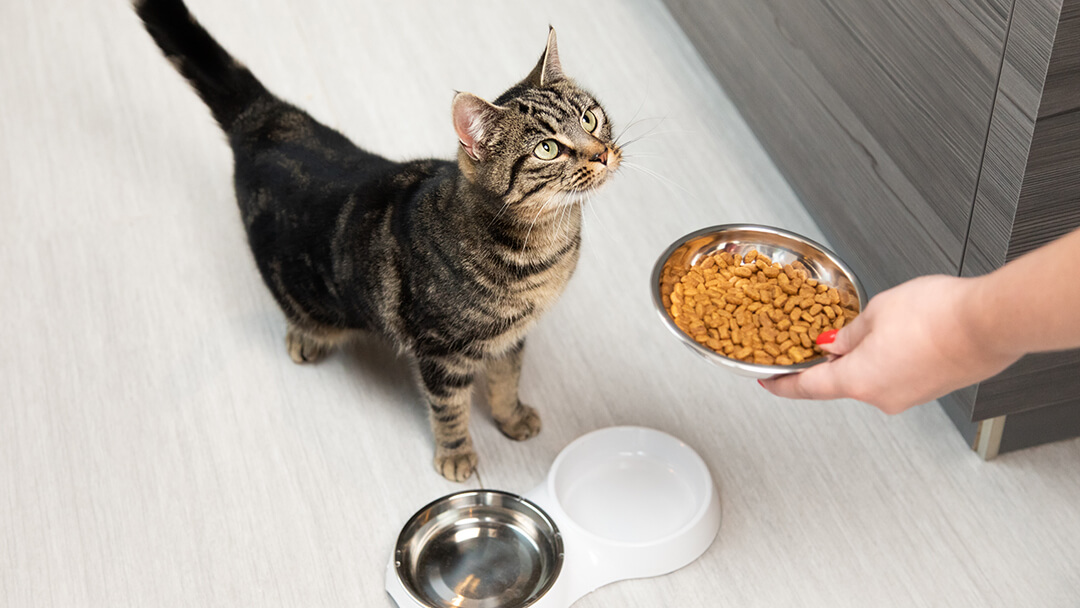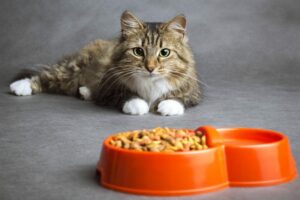Cats, our lovable feline companions, depend on us to provide them with the best care possible. One of the fundamental aspects of cat care is ensuring they receive the essential nutrients vital for their health and well-being. In this comprehensive guide, we’ll delve into the crucial nutrients your cat needs for a happy and healthy life.
I. Introduction
As responsible pet owners, it’s crucial to understand that a cat’s nutritional requirements are unique and specific. Cats are obligate carnivores, meaning they primarily thrive on a diet rich in animal-based proteins. This article aims to unravel the mysteries of feline nutrition, guiding you on the essential nutrients your cat needs to live its best life.
II. Understanding Cat Dietary Requirements
A. Protein needs for feline health
At the core of a cat’s nutritional requirements lies the need for high-quality protein. Unlike some other pets, cats must obtain essential amino acids from their diet, making protein a cornerstone for their health.
B. Importance of amino acids
Amino acids are the building blocks of proteins, and each plays a crucial role in various bodily functions. Taurine, for instance, is an amino acid vital for feline cardiovascular health and overall well-being.
C. Role of fats in a cat’s diet
Fats are another essential component of a cat’s diet, providing a concentrated source of energy. Additionally, fats aid in the absorption of fat-soluble vitamins, contributing to a balanced diet.
D. Essential vitamins for overall well-being
Vitamins such as A, D, and E are indispensable for maintaining a cat’s health. From promoting good vision to supporting a robust immune system, these vitamins play diverse roles in feline well-being.
III. Common Cat Nutritional Deficiencies
A. Impact of protein deficiency
Insufficient protein can lead to a range of health issues in cats, including muscle wasting and a weakened immune system. Recognizing and addressing protein deficiency is crucial for a cat’s overall health.
B. Consequences of insufficient amino acids
A lack of essential amino acids, like taurine, can result in severe health problems, such as heart disease and reproductive issues. Cat owners must be vigilant in ensuring their pets receive a balanced and amino acid-rich diet.
C. Recognizing signs of fat deficiency
A deficiency in fats can affect a cat’s coat health, leading to dryness and increased shedding. Understanding the signs of fat deficiency is pivotal in adjusting a cat’s diet accordingly.
D. Health issues linked to vitamin deficiencies
Vitamin deficiencies can manifest in various health issues, from poor eyesight to weakened bones. Cat owners should be aware of these signs and work towards providing a well-rounded diet.
IV. Choosing the Right Cat Food
A. Evaluating protein content in cat food
Selecting cat food with high-quality protein sources ensures your feline friend receives the necessary amino acids for optimal health. Look for ingredients like chicken, turkey, or fish as primary protein sources.
B. Identifying quality fats in cat diets
Not all fats are created equal. Opt for cat foods with healthy fats, such as omega-3 fatty acids, to support skin and coat health. Avoid excessive fat content to prevent obesity.
C. Importance of well-balanced cat food
A well-balanced cat food formula considers not only protein and fats but also the presence of essential vitamins and minerals. Choosing cat food with a balanced nutritional profile is key to meeting your cat’s overall dietary needs.
D. Reading cat food labels effectively
Understanding how to interpret cat food labels is crucial for making informed choices. Learn to identify key ingredients and nutritional information to ensure your cat’s food meets its specific requirements.
V. Homemade Cat Diets: Pros and Cons
A. The appeal of homemade cat food
Some cat owners opt for homemade diets to have better control over their pet’s nutrition. The appeal lies in using fresh ingredients and avoiding certain additives found in commercial cat food.
B. Risks associated with DIY cat diets
While homemade diets can offer a personalized touch, they come with risks. It’s challenging to achieve a balanced nutritional profile, and deficiencies or excesses can lead to health problems. Consultation with a veterinarian is crucial for success.
C. Balancing homemade cat meals effectively
For those committed to providing homemade meals, working closely with a veterinarian to develop a nutritionally complete and balanced recipe is essential. This ensures that all of a cat’s dietary needs are met.
VI. Special Considerations for Kittens and Senior Cats
A. Unique nutritional needs of kittens
Kittens have distinct dietary requirements for growth and development. High-quality kitten food with increased protein and calorie content is essential to support their rapid growth.
B. Addressing dietary challenges in senior cats
Senior cats often face health challenges, including reduced metabolism and dental issues. Choosing cat food tailored to senior cats can address these challenges and support their overall well-being.
C. Adjusting cat diets based on life stage
Recognizing the different life stages of cats is crucial for adjusting their diets accordingly. From kittenhood to senior years, adapting nutritional intake ensures a cat’s changing needs are met.
VII. Ensuring Hydration in Cats
A. Water intake importance for feline health
Proper hydration is often overlooked but is equally vital for a cat’s health. Cats may not be natural water drinkers, so owners need to encourage water intake through wet food, fountains, or water bowls.
B. Tips to encourage cat hydration
Incorporate wet cat food into their diet, use cat-friendly water fountains, and place water bowls strategically to encourage regular water consumption. Staying hydrated supports kidney function and overall health.
VIII. Supplements for Cats: When and How
A. Understanding when supplements are necessary
While a balanced diet should ideally meet all nutritional needs, there are situations where supplements may be necessary. Consult with a veterinarian to determine if your cat requires specific supplements.
B. Safely introducing supplements into a cat’s diet
Supplements should only be introduced under the guidance of a veterinarian. Incorrect dosages or unnecessary additions can lead to health issues. Tailor supplement choices to address specific deficiencies or health concerns.
C. Consulting a veterinarian for supplement guidance
Veterinarians play a crucial role in guiding cat owners on supplement use. Regular check-ups allow for the assessment of a cat’s overall health, ensuring any necessary adjustments to the diet are made.
IX. Common Myths About Cat Nutrition
A. Debunking misconceptions around cat diets
Various myths circulate about cat nutrition, from the necessity of milk to the idea that all cats should eat the same diet. Dispelling these myths is essential for making informed decisions about a cat’s diet.
B. Separating facts from fiction
Through scientific understanding and consultation with veterinarians, cat owners can separate nutritional facts from fiction. This empowers them to make choices that genuinely benefit their feline friends.
X. Overcoming Cat Feeding Challenges
A. Addressing picky eating habits
Cats are notorious for their selective eating habits. Understanding the reasons behind pickiness and employing strategies to introduce new foods gradually can help overcome feeding challenges.
B. Dealing with food allergies in cats
Food allergies can manifest as digestive issues, skin problems, or behavioral changes. Identifying and eliminating allergens from a cat’s diet, with guidance from a veterinarian, is essential for their well-being.
XI. Tips for Transitioning Cat Diets
A. Gradual diet transitions for cat comfort
Abrupt changes in a cat’s diet can lead to digestive upset. Gradual transitions, mixing old and new food, help cats adjust to changes without stress.
B. Monitoring cat reactions to new foods
Observing your cat’s reactions to new foods is crucial during diet transitions. Look for signs of allergies or discomfort and adjust the diet accordingly.
XII. Importance of Regular Veterinary Check-ups
A. Role of veterinarians in monitoring cat nutrition
Veterinarians are essential partners in maintaining a cat’s health. Regular check-ups allow for the assessment of a cat’s nutritional status, catching potential issues early on.
B. Catching nutritional issues early through check-ups
Routine veterinary visits provide opportunities to catch and address nutritional issues before they escalate. Prevention is key to ensuring a cat’s long and healthy life.
XIII. The Connection Between Diet and Cat Behavior
A. Impact of nutrition on cat behavior
Nutrition plays a significant role in a cat’s behavior. A well-balanced diet contributes to a content and happy feline, while nutritional deficiencies may lead to behavioral problems.
B. Addressing behavior issues through diet adjustments
In cases of behavioral concerns, dietary adjustments, guided by a veterinarian, may be part of the solution. Understanding this connection aids in providing holistic care for your cat.
XIV. Tailoring Cat Diets to Breed and Size
A. Recognizing breed-specific nutritional needs
Different cat breeds may have varying nutritional requirements. Recognizing these differences allows cat owners to tailor their pet’s diet to meet specific breed needs.
B. Adjusting portions based on cat size
A cat’s size directly influences its caloric needs. Adjusting portion sizes according to a cat’s size and activity level helps prevent obesity and promotes optimal health.
XV. Conclusion
In conclusion, understanding the crucial nutrients your cat needs is the foundation of responsible cat ownership. From protein and amino acids to fats and vitamins, each component plays a vital role in ensuring your feline companion lives a long, happy life.



